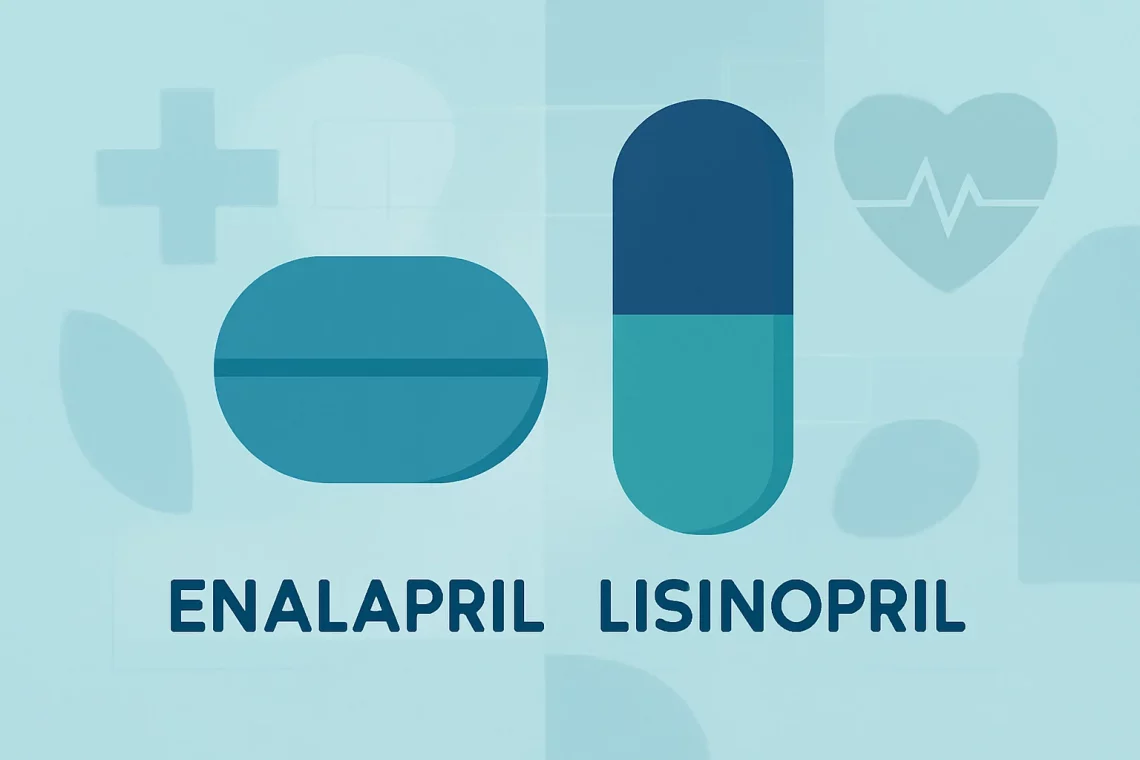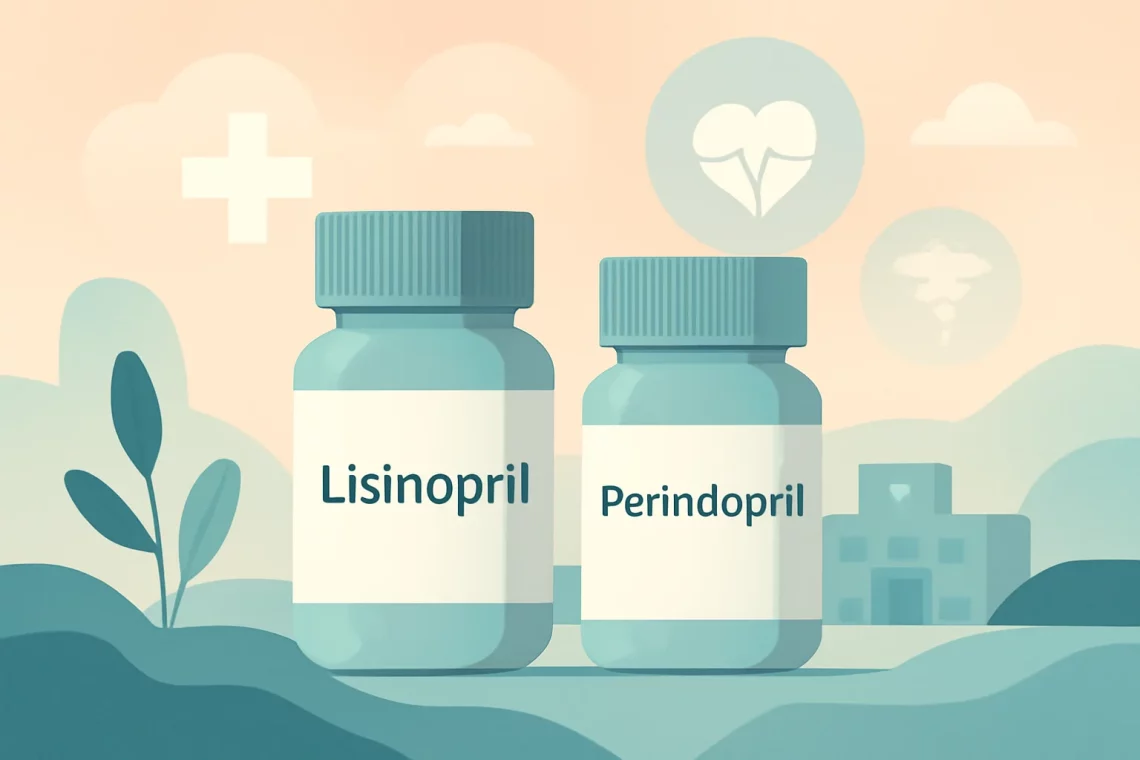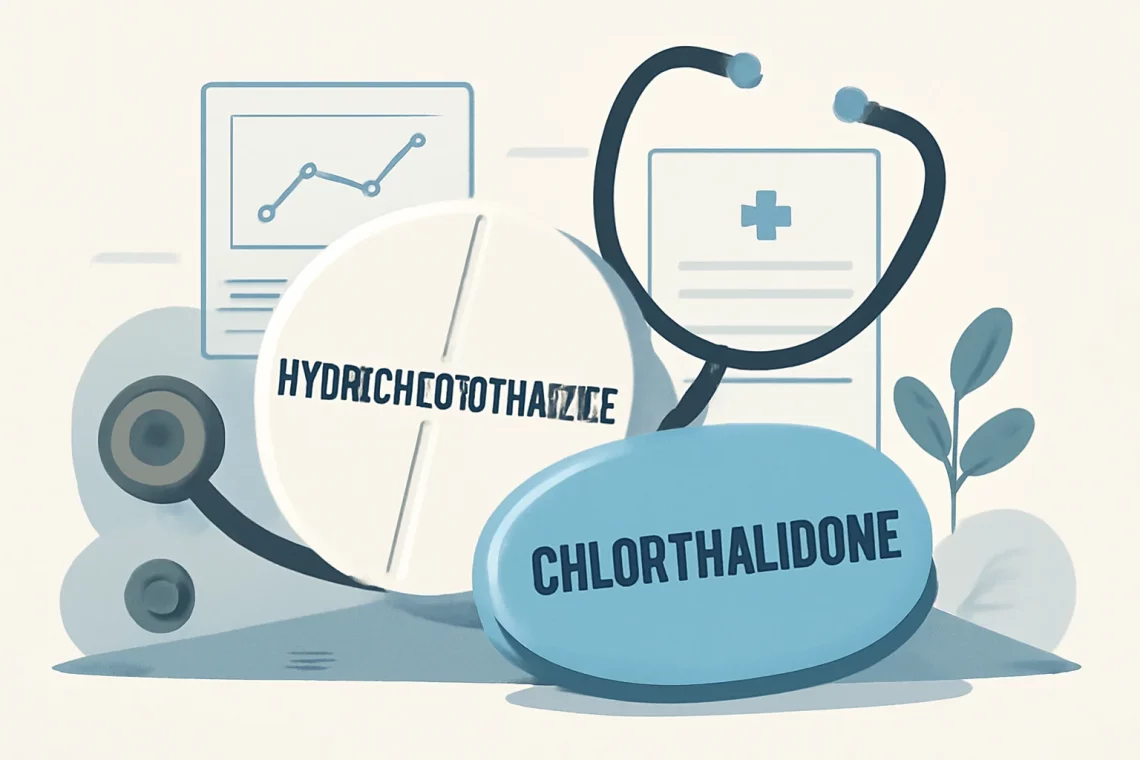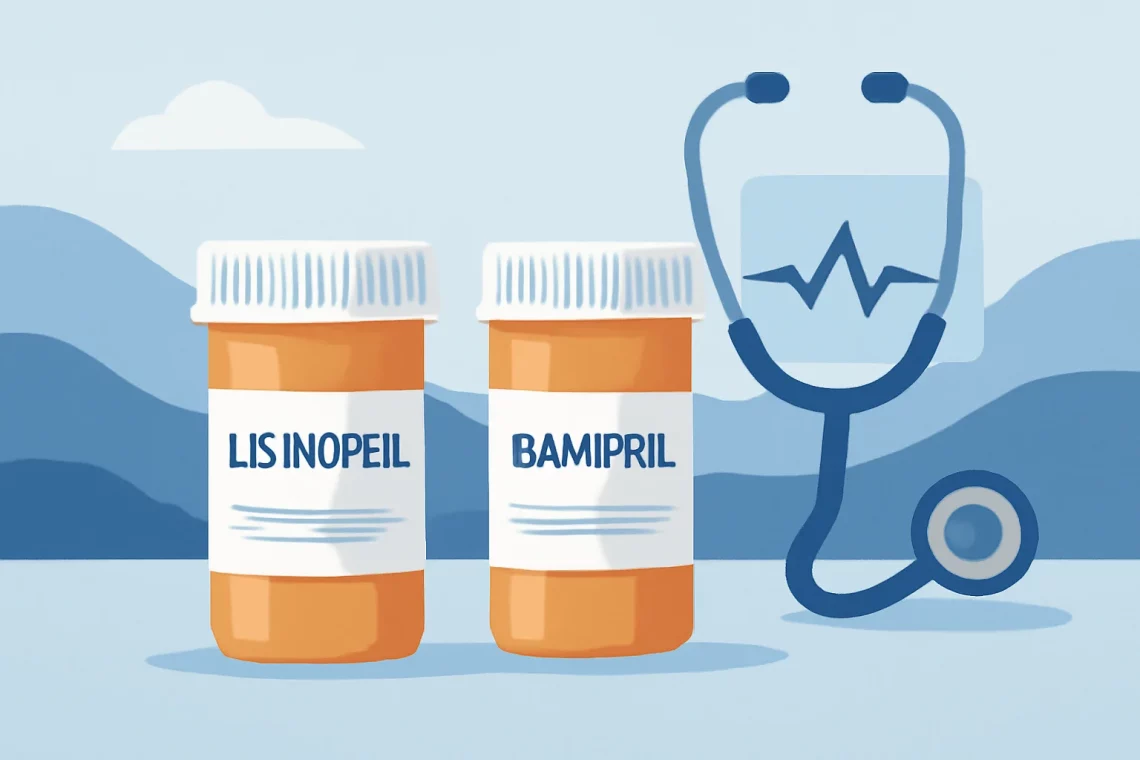-
Enalapril vs Lisinopril: Which Medication is Right for You?
Enalapril and lisinopril are two widely used medications in the treatment of hypertension and heart failure. Both belong to the class of medications known as ACE inhibitors, which play a crucial role in managing blood pressure by relaxing blood vessels. This leads to improved blood flow and reduced workload on the heart. Despite their similarities, enalapril and lisinopril possess distinct characteristics that may influence a healthcare provider’s choice of one over the other for a particular patient. The decision often hinges on various factors, including the patient’s overall health profile, other underlying conditions, and potential interactions with other medications. The way these drugs are metabolized and eliminated from the body…
-
Nifedipine vs Amlodipine: Which is Better for Blood Pressure Management?
Nifedipine and amlodipine are both medications that belong to the class of calcium channel blockers, which are primarily used in the treatment of hypertension and angina. These drugs work by inhibiting the influx of calcium ions into the smooth muscle cells of the heart and blood vessels, leading to vasodilation and a subsequent decrease in blood pressure. As cardiovascular diseases continue to be a significant concern worldwide, understanding the nuances between these two medications can empower patients and healthcare providers to make informed decisions regarding treatment options. The choice between nifedipine and amlodipine may depend on various factors, including the specific health conditions of the patient, their medical history, and…
-
Amlodipine vs Nifedipine: Which is Better for Your Heart Health?
Amlodipine and nifedipine are both medications used primarily in the management of hypertension and certain forms of angina. As calcium channel blockers, they work by relaxing the blood vessels, allowing for improved blood flow and reduced strain on the heart. Although they share a common mechanism, the two medications differ in their pharmacological properties, indications, and side effects. Understanding these differences can help patients and healthcare providers make informed decisions regarding the best treatment options. Hypertension, often referred to as high blood pressure, is a chronic condition that can lead to severe health complications if not managed properly. The prevalence of hypertension has been on the rise, prompting the need…
-
Lisinopril vs Valsartan: Which Medication is Right for You?
The management of hypertension and heart-related conditions is critical in promoting overall wellness. Among the various pharmacological agents available, Lisinopril and Valsartan are two commonly prescribed medications that have garnered significant attention. Both drugs are utilized for treating high blood pressure and heart failure, yet they belong to different classes and operate through distinct mechanisms. Understanding the nuances of these medications can empower patients and healthcare providers to make informed decisions regarding treatment options. Lisinopril is an angiotensin-converting enzyme (ACE) inhibitor, while Valsartan is classified as an angiotensin II receptor blocker (ARB). The differences in their mechanisms of action can influence their efficacy, side effects, and overall patient experience. Furthermore,…
-
Lisinopril vs Perindopril: Key Differences and Uses Explained
Lisinopril and Perindopril are two widely used medications that belong to the class of drugs known as ACE inhibitors (Angiotensin-Converting Enzyme inhibitors). These medications play a crucial role in the management of various cardiovascular conditions, particularly hypertension (high blood pressure) and heart failure. The increasing prevalence of these conditions has made it essential for healthcare providers and patients alike to understand the differences and similarities between these two therapeutic agents. Both Lisinopril and Perindopril work by inhibiting the action of the ACE enzyme, which is responsible for converting angiotensin I to angiotensin II – a potent vasoconstrictor that can elevate blood pressure. By blocking this enzyme, both medications help to…
-
Lisinopril vs Captopril: Which ACE Inhibitor Is Right for You?
Lisinopril and captopril are two widely used medications for managing hypertension and heart failure. Both belong to a class of drugs known as angiotensin-converting enzyme (ACE) inhibitors, which play a crucial role in regulating blood pressure and fluid balance in the body. While they share some similarities in mechanism and purpose, there are significant differences in their pharmacokinetics, side effects, and overall efficacy. Understanding these differences is essential for patients and healthcare providers alike, as the choice between the two can significantly impact treatment outcomes. As we delve deeper into the characteristics of lisinopril and captopril, we will explore their mechanisms of action, common uses, potential side effects, and considerations…
-
Hydrochlorothiazide vs Chlorthalidone: Choosing the Right Diuretic
High blood pressure and fluid retention are common health challenges faced by many individuals. Among the various treatment options available, thiazide diuretics, such as hydrochlorothiazide and chlorthalidone, have gained popularity due to their effectiveness in managing these conditions. Both medications work by promoting the excretion of sodium and water through the kidneys, helping to lower blood pressure and reduce swelling. However, despite their similar uses, these two drugs have distinct properties that can influence their effectiveness, side effects, and suitability for different patients. The choice between hydrochlorothiazide and chlorthalidone often depends on various factors, including the patient’s overall health, the presence of other medical conditions, and individual responses to treatment.…
-
Lisinopril vs Ramipril: Which Blood Pressure Medication is Right for You?
High blood pressure, also known as hypertension, is a common condition that affects millions of people worldwide. It is often referred to as a “silent killer” because it may not present any noticeable symptoms until serious complications arise. Managing hypertension is crucial to reducing the risk of heart disease, stroke, and other health issues. Various medications are available to help control blood pressure, and two of the most commonly prescribed classes of these medications are ACE inhibitors. Lisinopril and Ramipril are both effective options within this category, but they have distinct characteristics, benefits, and potential side effects. ACE inhibitors work by relaxing blood vessels, allowing blood to flow more freely,…
-
Lisinopril vs Enalapril: Which Medication is Right for You?
High blood pressure, medically known as hypertension, is a prevalent condition that affects millions of individuals worldwide. Managing hypertension is crucial for reducing the risk of serious health issues such as heart disease, stroke, and kidney failure. Among the various treatment options available, two commonly prescribed medications are Lisinopril and Enalapril. Both belong to a class of drugs called angiotensin-converting enzyme (ACE) inhibitors, which work by relaxing blood vessels and lowering blood pressure. Understanding the differences and similarities between these two medications can help patients and healthcare providers make informed decisions about treatment options. While both Lisinopril and Enalapril serve the same primary purpose, they have unique characteristics, including varying…
-
Labetalol vs Methyldopa: Which is Better for Managing Hypertension?
Hypertension, commonly known as high blood pressure, is a significant global health concern that affects millions of individuals. It is often dubbed the “silent killer” due to its asymptomatic nature, which can lead to severe complications if left untreated. Effective management of hypertension is crucial to prevent cardiovascular diseases, stroke, and other life-threatening conditions. Among the various classes of antihypertensive medications available, labetalol and methyldopa have gained attention for their unique properties and applications in treating high blood pressure, particularly in specific populations such as pregnant women. Labetalol, a combined alpha and beta-blocker, has been widely used due to its dual mechanism of action, which effectively lowers blood pressure by…







































